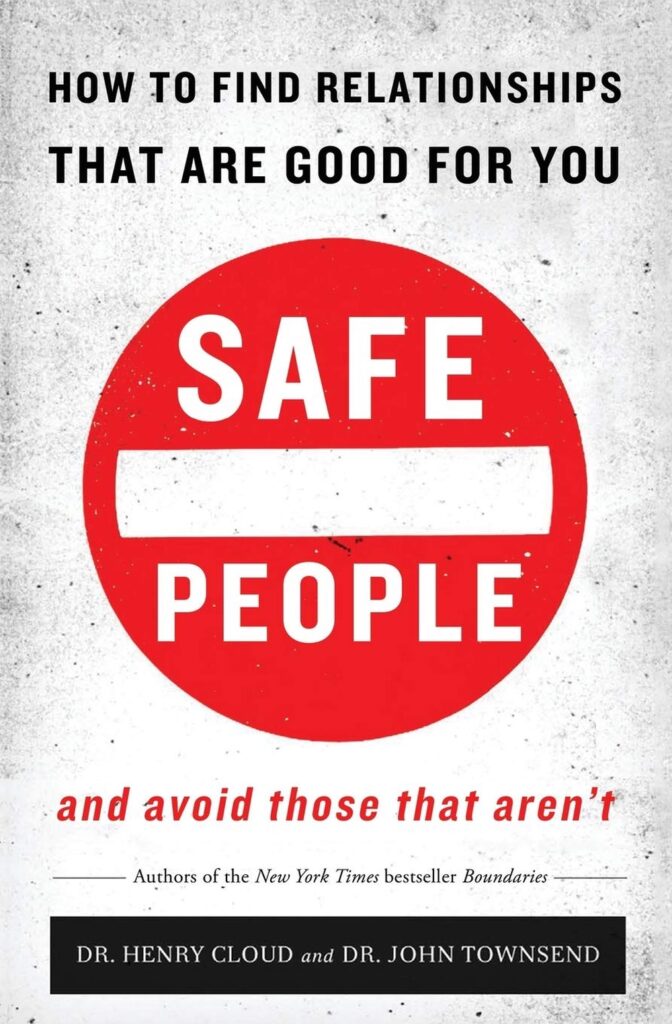Sharing my learnings from the book, Safe People by Dr. Henry Cloud & Dr. John Townsend
Safe People by Dr. Henry Cloud & Dr. John Townsend
Too many of us have invested ourselves into relationships where things have gone wrong. You may have experienced being judged, manipulated controlled, or worse. The impact of being with an unsafe person can be damaging to your confidence, your trust in others, and even your health. And what’s more, we either repeat the same mistakes of judgment over and over, or else simply give up on trying to have great, authentic relationships again.
Why do we choose the wrong people to get involved with? Is it possible to change? And if so, where does one begin?
Drs. Henry Cloud and John Townsend offer solid guidance for making safe choices in relationships, from family to friendship, romance, and work.

- Unsafe people can be destructive and can lead to unhappiness. They don’t have the ability for true closeness.
- three different groups of unsafe people
- abandoners – people who enthusiastically start relationships but rarely see them through
- critics – these people are excellent at analyzing situations and people but they’re also more motivated by being judgmental & fixing mistakes than showing compassion and helping others
- irresponsibles – fun and spontaneous but you can’t count on them.
- Recognizing unsafe people is a crucial first step in surrounding yourself with safe ones.
- may appear to be highly moral but often tend to be religious rather than spiritual
- rarely admit weakness
- often defensive & resist feedback
- unsafe people aren’t interested in character growth. They think they’re perfect & because they resist change & growth, they remain stagnant
- recognizing interpersonal traits of unsafe people can help you see if you’re trapped in an unsafe relationship
- unsafe people are uncomfortable with true connection
- unsafe people avoid closeness because they can’t connect at an emotional level
- unsafe people lack empathy, they only help you in order to feel good about themselves or they want reciprocation later.
- your past experiences can contribute to unsafe characteristics in your personality
- four things that are destructive to safety:
- envy
- erroneous notion we’re self-sufficient
- entitlement
- transgression against God’s laws
- Close, safe relationships can make you healthier, while unsafe ones can make you physically ill
- taking a relationship inventory using both emotion & reason and keeping your values at the forefront.
- Bringing safe people into your life can help you develop safe & healthy relationships
- safe people acknowledge that spiritual life isn’t just a relationship with God but involves authentic relationships with each other.
- 6 tips in creating safe relationships:
- ask for help
- acknowledge your needs but remain authentic to who you are
- rebel against yourself!
- ask for truth from others about yourself
- learn to give and receive forgiveness
- seek out places and people in your community where you can take and receive safety


Leave a Reply